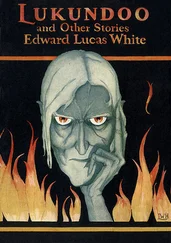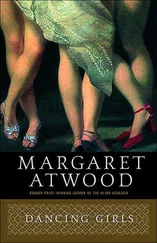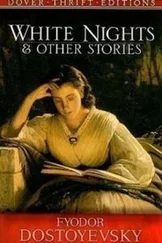Margaret Oliphant - A Widow's Tale, and Other Stories
Здесь есть возможность читать онлайн «Margaret Oliphant - A Widow's Tale, and Other Stories» — ознакомительный отрывок электронной книги совершенно бесплатно, а после прочтения отрывка купить полную версию. В некоторых случаях можно слушать аудио, скачать через торрент в формате fb2 и присутствует краткое содержание. Издательство: Иностранный паблик, Жанр: foreign_prose, на английском языке. Описание произведения, (предисловие) а так же отзывы посетителей доступны на портале библиотеки ЛибКат.
- Название:A Widow's Tale, and Other Stories
- Автор:
- Издательство:Иностранный паблик
- Жанр:
- Год:неизвестен
- ISBN:нет данных
- Рейтинг книги:3 / 5. Голосов: 1
-
Избранное:Добавить в избранное
- Отзывы:
-
Ваша оценка:
- 60
- 1
- 2
- 3
- 4
- 5
A Widow's Tale, and Other Stories: краткое содержание, описание и аннотация
Предлагаем к чтению аннотацию, описание, краткое содержание или предисловие (зависит от того, что написал сам автор книги «A Widow's Tale, and Other Stories»). Если вы не нашли необходимую информацию о книге — напишите в комментариях, мы постараемся отыскать её.
A Widow's Tale, and Other Stories — читать онлайн ознакомительный отрывок
Ниже представлен текст книги, разбитый по страницам. Система сохранения места последней прочитанной страницы, позволяет с удобством читать онлайн бесплатно книгу «A Widow's Tale, and Other Stories», без необходимости каждый раз заново искать на чём Вы остановились. Поставьте закладку, и сможете в любой момент перейти на страницу, на которой закончили чтение.
Интервал:
Закладка:
She was told at the hotel that the young gentleman had gone out – for which she was deeply thankful – but would be back immediately. Oh, if he might but be detained; if something would but happen to keep him away! She came up the great vulgar common stairs which so many people trod, some perhaps with hearts as heavy as hers, few surely with such a problem to resolve. How to tell her boy that his father – oh God! his father, whom he loved and looked up to; his kind father, who never grudged him anything; a man so well known; a good man, of whom everybody spoke well – to tell him that his father – She locked the door of her room instinctively, as if that would keep Horace out, and keep her secret concealed.
It was one of those terrible hotel rooms, quite comfortable and wholly unsympathetic, in which many of the sorest hours of life are passed, where parents come to part with their children, to receive back their prodigals, to look for the missing, to receive tidings of the worse than dead; where many a reconciliation has to be accomplished, and arrangement made that breaks the heart. Strange and cold and miserable was the unaccustomed place, with no associations or soothing, no rest or softness in it. She walked about it up and down, and then stopped, though the movement gave her a certain relief, lest Horace should come to the door, hear her, and call out in his hearty young voice to be admitted. She had not been able to think before for the recurrence of that dismal chorus, "At fifty!" and now she could not think for thinking that any moment Horace might come to the door. She was more afraid of her boy than of all the world beside: had some one come to tell her that an accident had happened, that he had broken an arm or a leg, it seemed to her that she would have been glad, – anything rather than let him know. And yet he would have to know. The eldest son, a man grown, after his father the head of his family, the one who would have to take care of the children. How would it be possible to keep this from him? And how could it be told? His mother, who had prided herself on her son's spotless youth, and rejoiced in the thought that a wanton word was as impossible from the lips of Horace as from those of Milly, reddened and felt her very heart burn with shame. How could she tell him? She could not tell him. It was impossible; it was beyond her power.
And then she shrank into the corner of her seat and held her breath: for who could this be but Horace, with a foot that scarcely seemed to touch the ground, rushing with an anxious heart to hear news of his father, up the echoing empty stair?
CHAPTER VII.
EXPLANATION
"Mother! are you there? Let me in. Mother! open the door."
"In a moment, Horace; in a moment." It could not be postponed any longer. She rose up slowly and looked at herself in the glass to see if it was written in her face. She had not taken off her bonnet or made any change in her outdoor dress, and she was very pale, almost ghastly, with all the lines deepened and drawn in her face, looking ten years older, she thought. She put her bonnet straight with a woman's instinct, and then slowly, reluctantly, opened the door. He came in eager and impatient, not knowing what to think.
"Did you want to keep me out, mother! Were you vexed not to find me waiting? And how about papa?"
"No, Horace, not at all vexed."
"I went a little farther than I intended. I don't know my way about. But, mother, what of papa?"
"Not very much, my dear," she said, turning away. "It must be nearly time for lunch."
"Yes, it is quite time for lunch; and you had no breakfast. I told them to get it ready as I came up. But you don't answer me. Of course you found him. Is he really ill? What does he mean by it? Why didn't he come with you? Mother dear, is it anything serious? How pale you are! Oh, you needn't turn away; you can't hide anything from me. What is the matter, mamma?"
"It is serious, and yet it isn't serious, Horace. He is not ill, which is the most important thing. Only a little – seedy, as you call it. That's a word, you know, that always exasperates me."
"Is that all?" the youth said, looking at her with incredulous eyes.
She had turned her back upon him, and was standing before the glass, with a pretence of taking off her bonnet. It was easier to speak without looking at him. "No, my dear, that is not all. You will think it very strange what I am going to say. Papa and I have had a quarrel, Horace."
"Mother!"
"You may well be startled, but it is true. Our first quarrel," she said, turning half round with the ghost of a smile. It was the suggestion of the moment, at which she had caught to make up for the impossibility of thinking how she was to do it. "They say, you know, that the longer one puts off a thing of this kind the more badly one has it, don't you know? – measles and other natural complaints. We have been a long time without quarrelling, and now we have done it badly." She turned round with a faint smile; but Horace did not smile. He looked at her very gravely, with an astonishment beyond words.
"I cannot understand," he said, almost severely, "what you can mean."
"Well, perhaps it is a little difficult; but still such things do happen. You must not jump at the conclusion that it is all my fault."
Horace came up to her with his serious face, and put his arm round her, turning her towards him. "I was not thinking of any fault, mother; but surely I may know more than this? You and he don't quarrel for nothing, and I am not a child. You must tell me. Mother, what is the matter?" he said, with great alarm. For she was overdone in every way, worn out both body and mind, and when she felt her son's arm round her nature gave way. She leant her head upon his young shoulder, and fell into that convulsive sobbing which it is so alarming to bear. It was some time before she could command herself enough to reply —
"Oh, that is true – that is true! not for nothing. But, dear Horry, you can't be the judge, can you, between your father and mother? Oh no! Leave it a little; only leave it. It will perhaps come right of itself."
"Mother, of course I can't be the judge; but still, I'm not a child. May I go, then, and see papa?"
"Oh no," she cried, involuntarily clasping his arm tight – "oh no! not for the world."
The youth grew very grave: he withdrew his arm from her almost unconsciously, and said, "Either it is a great deal more serious than you say, or else – "
"It is very serious, Horace. I don't deceive you," she said. "It may come to that – that we shall never – be together any more. But still I implore you, don't go to your father – oh! not now, my dear. He would not wish it. You must give me your word not to go."
She could not bear the scrutiny of his eyes. She turned and went away from him, putting off her light cloak, pulling open drawers as if in a search for something; but he stood where she had left him, full of perplexity and trouble. A quarrel between his parents was incredible to Horace; and the idea of a rupture, a public scandal, a thing that could be talked about! He stood still, overwhelmed by sudden trouble and distress, though without the slightest guess of the real tragedy. "I can't think what you could quarrel about," he said. "It seems a mere impossibility. Whatever it is, you must make it up, mother, for our sakes."
"My dear, anything that can be done, you may be sure will be done, for your sakes."
"But it is impossible, you know. A quarrel! between you and papa! It is out of the question. Nobody would believe it. I think you must be joking all the time," he said, with an abrupt laugh. But his laugh seemed so strange, even to himself, that he became silent suddenly with a look of confusion and irritation. Never in his life had he met with anything so extraordinary before.
Читать дальшеИнтервал:
Закладка:
Похожие книги на «A Widow's Tale, and Other Stories»
Представляем Вашему вниманию похожие книги на «A Widow's Tale, and Other Stories» списком для выбора. Мы отобрали схожую по названию и смыслу литературу в надежде предоставить читателям больше вариантов отыскать новые, интересные, ещё непрочитанные произведения.
Обсуждение, отзывы о книге «A Widow's Tale, and Other Stories» и просто собственные мнения читателей. Оставьте ваши комментарии, напишите, что Вы думаете о произведении, его смысле или главных героях. Укажите что конкретно понравилось, а что нет, и почему Вы так считаете.












